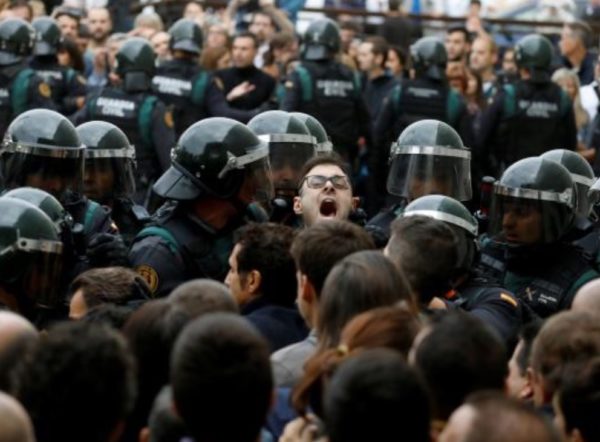Emergency services in Catalonia have reported scores of injuries suffered by Catalans in clashes with the Spanish police determined to stop voting in a referendum for independence today.
The injuries to people occurred as riot police stormed voting stations to stop the referendum on independence from Spain.
Most of those people sustained slight injuries and three suffered more serious injuries, the Catalan services said on Twitter.
The Spanish riot police in charges after charges at polling stations confiscated ballot boxes and voting papers.
Police broke down doors to force entry into voting stations as defiant Catalans shouted “Out with the occupying forces!” and sang the anthem of the wealthy northeastern region.
In one incident in Barcelona, police fired rubber bullets.
Officers in riot gear forcibly removed people from a polling station in Girona and Catalan firefighters protected voters by standing between them and national police.
The referendum, declared illegal by Spain’s central government, has thrown the country into its worst constitutional crisis in decades and deepened a centuries-old rift between Madrid and Barcelona.
Despite the police action, hundreds-strong queues of people formed in cities and villages throughout the region to cast their votes.
At one Barcelona polling station, elderly people and those with children entered first.
“I‘m so pleased because despite all the hurdles they’ve put up, I’ve managed to vote,” said Teresa, a 72-year-old pensioner in Barcelona who had stood in line for six hours.
The ballot will have no legal status as it has been blocked by Spain’s Constitutional Court and Madrid for being at odds with the 1978 constitution.
A minority of around 40 per cent of Catalans support independence, polls show, although a majority want to hold a referendum on the issue.
The region of 7.5 million people has an economy larger than that of Portugal.
However much voting takes place, a “yes” result is likely, given that most of those who support independence are expected to cast ballots while most of those against it are not.

